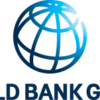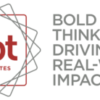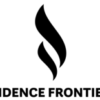Introduction
The International Rescue Committee (IRC) responds to the world’s worst humanitarian crises and helps people whose lives and livelihoods are shattered by conflict and disaster to survive, recover, and gain control of their lives. Founded in 1933 at the request of Albert Einstein, the IRC works with people forced to flee from war, conflict and disaster and the host communities which support them, as well as those who remain within their homes and communities. At work today in over 40 countries and 25 U.S. cities, we improve outcomes in the areas of health, safety, economic well-being, education, and power.
Project Background
PlayMatters is a five-year education initiative funded by the LEGO Foundation. The program reimagines childhood for 350,000+ refugee and host-community children in Uganda whose education and social development has been affected by displacement and trauma. Building on children’s amazing resilience and a growing evidence base supporting Learning through Play methodologies, PlayMatters cultivates holistic learning for children ages 3-12+.
In Uganda, Playmatters is a consortium project implemented by the International Rescue Committee (IRC), War Child Holand (WCH), Plan International and Innovations for Poverty Action (IPA) where the International Rescue Committee is the consortium led. The three implementing organizations (IRC, WCH and Plan) share leadership across different outcome areas, with WCH leading research and wellbeing. Plan leads in community engagement, gender and inclusion. IRC leads teacher professional development, Policy and Advocacy, communication and multimedia and overall coordination. IPA supports the generation of evidence briefs to inform policy and it collaborates with WCH on the implementation of research activities.
IRC is implementing the project in Kyaka, Imvepi, Rhinpo camp and Palabek refugee settlements and the surrounding host communities in Kyegegwa, Terego, MadiOkollo and Lamwo district respectively. Plan is implementing the project in the Pagirinya and Bidibidi refugee settlements, as well as the surrounding host communities in Adjumani and Yumbe districts respectively. WCH is implementing the project in the Palolinya settlement in Obongi district, Nakivale and Oruchinga settlements in Isingiro district, Kyangwali in Kikuube district, and Bidibidi in Yumbe district.
The project is targeting a reach of 350,000 learners with the learning through Play approach in Uganda, 5594 educators, 367 schools, 7052 community leaders and 310 system actors across all the implementing districts.
Broader objective of the project
Improved holistic learning outcomes (creative, physical, emotional, cognitive and social skills) and psychosocial well-being of children ages 3-12+
Specific objectives of the project
• Integrate Learning through Play into Teaching and Learning
• Increase Community Engagement in Learning through Play
• Strengthen Learning through Play in Policy and Systems
Rationale of the assignment
PlayMatters delivers a comprehensive Learning through Play (LtP) package of interventions to children aged 3-12+ in the Kyaka, Imvepi, Rhino camp, Palabek, Parolinya, Bidibidi, Isingiro, Kyangwali, and Obongi refugee settlements, as well as the surrounding host communities. The project is implemented in cohorts, with each cohort receiving a comprehensive LtP package within one school calendar year. Therefore, the purpose of this evaluation is to assess the performance of the project and capture project achievements against intended outcomes and document best practices and challenges to inform future similar programming. The evaluation will also ensure accountability towards LEGO foundation as a donor and the project stakeholders.
Objectives of the Endline Evaluation
• Evaluate to what extent the project delivered effective, efficient, relevancy, Impact and sustainability.
• Assess the impact of integrating Learning through Play (LtP) methodologies in teaching and learning.
• To assess the effectiveness of the Client and Feedback Response mechanism in addressing the needs and concerns of the target group.
• To measure the extent to which specific project indicators are achieved against the baseline values.
• Identify and document key lessons learned, challenges and draw recommendations for future programming.
Scope of Work
The End Line Evaluation is to be carried out in Isingiro, Kyegegwa, Kikuube, Yumbe, Obongi, Adjumani and Lamwo district because these are the districts where cohort 1 schools are located.
Methodology
Study Design
The End-line evaluation will use a mixed-method embedded design in both data collection and analysis methods. This will include specification of the techniques for data collection and analysis, structured field visits, and interactions with beneficiaries and the evaluation team. Evaluation tools, methodology, and findings are to be reviewed, validated, and approved by the project team members, consortium MEAL and technical team.
Target population
The evaluation will target project partners, stakeholders, Educators, School Management Committee (SMC)/Centre Management Committee (CMC) members and Children. Educators include Headteacher, teachers and ECD caregivers while the project implementing partners are War Child Holland, Plan International and International Rescue Committee.
Sampling Techniques and sample size.
The Consultant will propose a sample size and sampling technique based on the sampling framework provided by the international Rescue committee. The sample should target all the different categories (Partners, Educators, SMC/CMC, System actors and Children).
Data collection; Methods and tools
The Consultant will collaborate with the PlayMatters project team to review the existing tools and develop any other tool that may be required for data collection. The consultant will propose data collection methods that should be in line with the evaluation objectives. The PlayMatters consortium will review and approve the methods and tools before they are deployed by the Consultant, where relevant, the consultant will adapt existing tools from the baseline evaluation.
Data Processing and analysis:
For quantitative data processing and storage, the Consultant will be required to use the PlayMatters Information Management system (Commcare) for processing. For Qualitative data, the consultant will be expected to design a suitable data collection tool in collection with the PlayMatters consortium staff.
The consultant will propose a data analysis plan for both quantitative and qualitative data in alignment to the PlayMatters overall goal, outcome areas and Evaluation objectives.
Quality monitoring:
The Consultant must set in place measures to ensure that the quality of information being collected meets the PlayMatters data quality dimension.
Expected Outputs and deliverables.
The endline assessment will involve reviewing of PlayMatters relevant documents which includes the project proposal, MEAL Plan, existing literature, developing qualitative and quantitative data collection instruments, conduct training for enumerators on data collection tools and methodologies and provide technical oversite during the data collection process. Analyzing qualitative and quantitative data and summarizing findings.
Specifically, the consultant’s scope of work and deliverables include, but not limited to, the following:
• Deliver inception report.
• Review and develop data collection tools.
• Development of training manual, selection and training of enumerators.
• Conduct data management (collection, cleaning, coding, entry, and analysis) throughout the entire process.
• Conduct a validation meeting with the PlayMatters staff and key stakeholders.
• Provide a draft report.
• Share a presentation of key findings from the endline assessment.
• The consultant should submit all the endline data including hard copy data collection tools (Consent forms, questionnaires, Pictures and audios) to PlayMatters.
Minimum Qualifications:
Qualifications of the Successful Lead Consultant
Required
• At least master’s degree in, Monitoring and Evaluation, statistics or any other related field.
• Demonstrate expertise in Evaluating education projects.
• At least 7 years’ experience Evaluating humanitarian programs.
• Demonstrated experience with quantitative and qualitative research, data base management and statistical data analysis
• Ability to deal with hardship and remote area field work Preferred.
• Strong understanding of humanitarian and evaluation ethics and a commitment to ethical working practices
• Highly developed self-management and communication skills.
• Demonstrate ability to work with diverse teams, good communication and leadership skills.
• Ability to deliver the assignment withing the stipulated timelines.
Job application procedure
Interested and qualified, Click here to apply.
All Jobs
More Information
- Address Kampala, Uganda, East Africa





